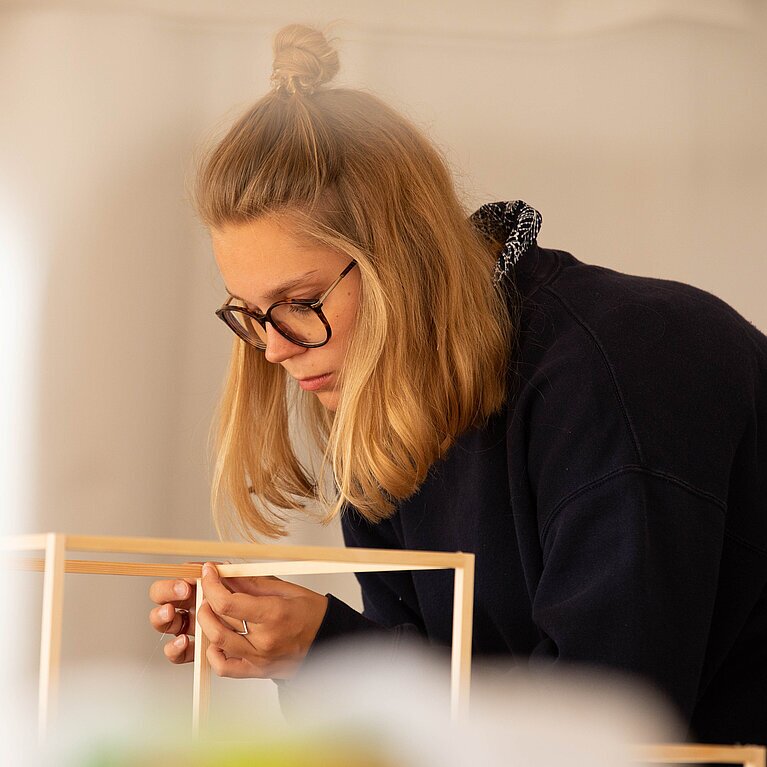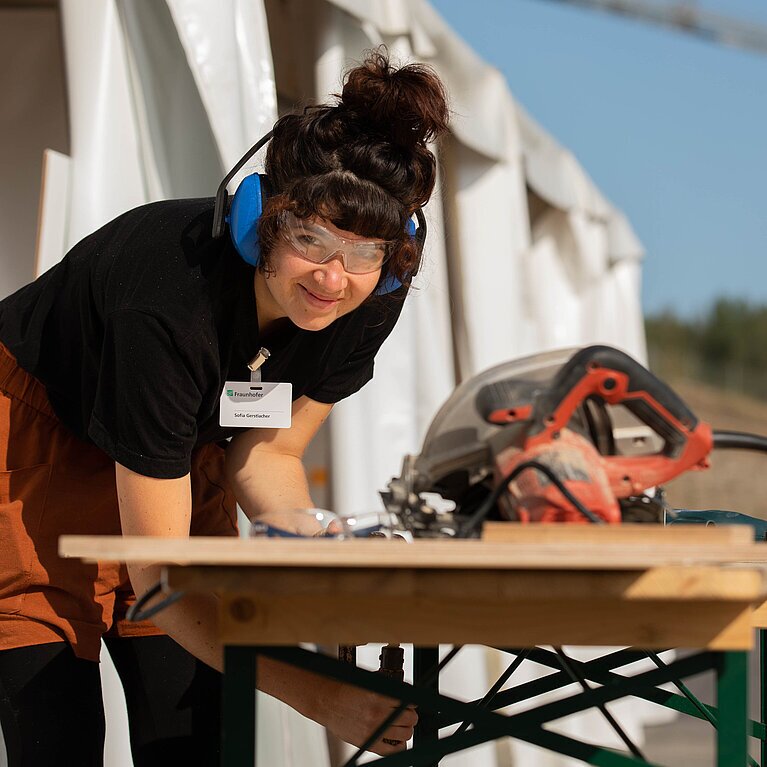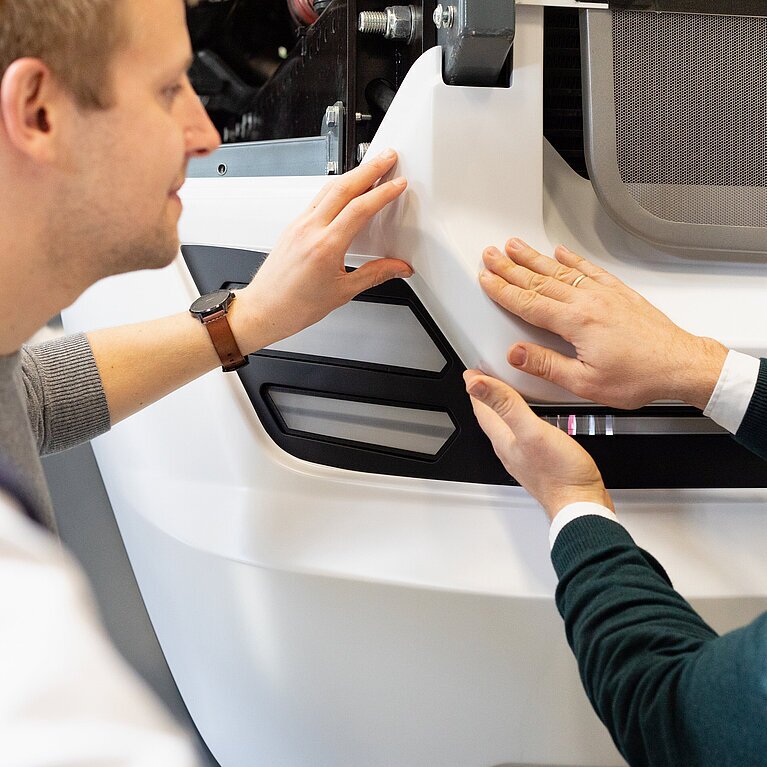

In times of crises, fake news and alternative facts, science takes on a crucial role. Its expertise helps politicians to assess disruption objectively rather than on a gut level, and subsequently to make informed decisions. “We are committed to the facts,” says Welf Zöller, head of Dialogue Communication at the Fraunhofer-Gesellschaft. “These need to be presented in an under - standable way. We’re already making good progress here, but we want to communicate our results and findings still more effectively in the future.” That’s why the non-profit Fraunhofer-Gesellschaft makes the abstract more accessible: for example, through interactive workshops, panel discussions or an exhibition of prototypes and visionary projects from the Fraunhofer “Science, Art and Design” network.
Its spokesman, Professor Jens Krzywinski, sees plenty of “positive friction elements” between the large scientific realm, which has yet to increase its cross-disciplinarity, and everything design brings to the table:
"It’s a very fruitful relationship"

He says, adding that design helps in transferring knowledge to society. While seeming quite different at first glance, art, design and science complement each other. The industrial designer, who holds a doctorate in Engineering, wants to present science with a different narrative than before, with a lower threshold, and thereby get people enthused about the creative design of their world. But how can this be done? Is it merely a question of finding the right formats? Jens Krzywinski sees a disruption there as well: “We may have to get used to communicating multiple perspectives simultaneously.” Ultimately, it is not technology as such that solves our problems, but its responsible and targeted application for the good of our society. Design can act as a catalyst and a builder of bridges here.
World leader in application-oriented research.
Design expert Krzywinski and communications specialist Zöller are working on new formats for communicating even complex issues and intricate scientific positions to the general public. And obviously with success. The Fraunhofer “Technology Roof” held during the European Championships 2022 attracted 11,250 visitors over the course of five days. After all, technology affects everyone. Today’s knowledge society depends on science and research. Their technology keeps cell phone networks working and solar cells generating electricity.
„Inventive genius is our country’s most valuable raw material,” is one of the Fraunhofer society’s guiding principles. "It enables the efficient and sustainable transfer of scientific findings to the economy in the first place.”
Even more so in a world full of disruptions – from COVID to AI to cybersecurity and medical imaging. With its focus on key technologies, the Fraunhofer-Gesellschaft is very much a driving force for change itself: It transforms disruption into productivity. The Fraunhofer-Gesellschaft is a major international generator of knowledge. With 76 institutes and research facilities and 30,000 employees, it accounts for an annual research volume of approximately 2.9 billion euros. About 70 percent of that comes from the field of contract research, i.e., from contracts with the industry and from projects with public funding. Since Fraunhofer works on a non-profit basis, any surpluses are being reinvested directly to promote and support science.

At the mcbw in Munich, the Fraunhofer-Gesellschaft is participating with its own showroom and a living lab.
“Our ambition is to not only promote science with our work,” says Welf Zöller, “but to be a contributing force for our society in transformation.”
"In addition to making new contacts within the design community, he aspires to enthuse people with more artistic interventions, among other things, and to use the increasing design expertise within the Fraunhofer-Gesellschaft to convey the benefits of science. Examples could include insulating materials made from fungi, both innovative and sustainable building materials. Or high-performance solar cells. Or quantum computing. Or entirely new networks. Or music streaming, as the MP3 code is also a Fraunhofer brainchild. Jens Krzywinski also believes there is an answer to the challenges of transformation: more networking and exchange among artists, designers, researchers and society. Cross-disciplinary research clusters offer a foretaste of our future, where diverse teams will be the norm.
The Interview with Jens Krzywinski first appeared in mcbw mag 2023.
